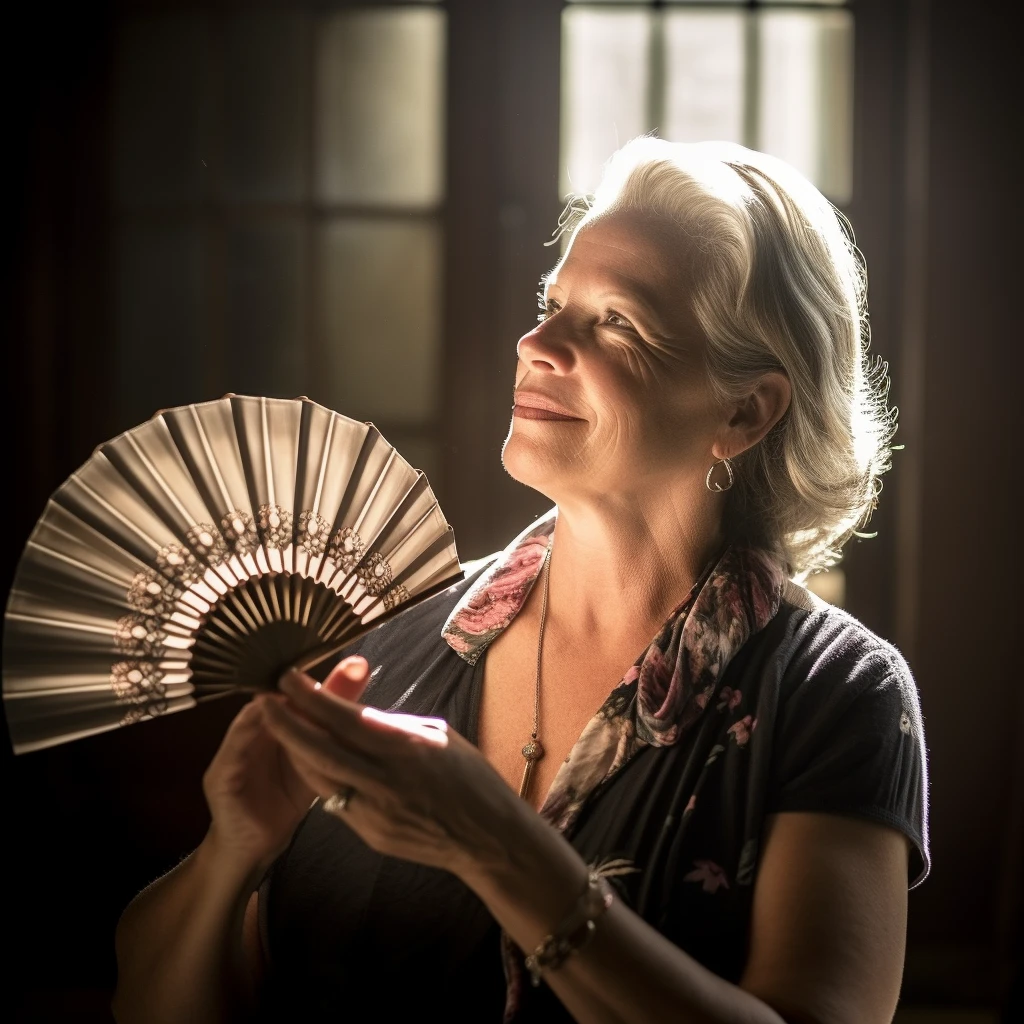Introduction
Every woman’s journey through life involves several milestones, and one of the most significant of these is menopause. Marking the end of the fertile years, this natural and inevitable phase signals a profound shift in a woman’s biological and hormonal state.
But menopause is not just about physiological changes – it’s a period of transition and transformation that can be deeply personal and powerful. Understanding the intricacies of menopause and learning to navigate its waves can help you emerge with enhanced strength and wisdom.
This comprehensive guide is aimed to help you understand menopause better, providing detailed insights into its stages, symptoms, management strategies, and potential impact on various aspects of health and wellbeing.
Having Menopause Symptoms?
Understanding Menopause: More Than Just ‘The Change’
Menopause is a biological process characterized by the cessation of menstruation due to the natural depletion of ovarian oocytes from ageing. The process is driven by changes in levels of the hormones estrogen and progesterone, which are crucial for reproductive functions.

However, menopause is more than just ‘the change’ that signals the end of a woman’s reproductive years. It’s a pivotal phase that holds physical, emotional, psychological, and even societal implications.
Historically, the perspective towards menopause has varied greatly across different cultures and societies. In some cultures, women gain more respect and a higher societal status as they reach menopause. They are seen as wise and experienced individuals who can offer guidance to younger generations.
In contrast, the modern Western narrative around menopause often tends to focus on loss – loss of fertility, youth, and femininity. However, this perspective overlooks the fact that menopause is a natural life stage, not a medical condition or a deficiency. It’s a time when a woman can focus on herself after years of balancing multiple roles, including motherhood and career. It’s a phase that can be associated with self-realization, empowerment, and personal growth.
Therefore, understanding menopause involves shifting societal perceptions and personal attitudes. Recognizing that the end of fertility doesn’t mark a decrease in a woman’s worth or capability is crucial. Embracing this transition as a natural, even empowering, stage of life can make the journey through menopause a positive and enriching experience.
Biology of Menopause: A Deeper Look
The hallmark of menopause is the end of menstrual periods, but this change is just the tip of the iceberg. Menopause is a complex process that involves a series of hormonal and physiological changes.
In the years leading up to menopause, the ovaries gradually decrease the production of estrogen and progesterone, the hormones that regulate the menstrual cycle. These hormones also play a vital role in various other functions in the body. For instance, estrogen is involved in maintaining bone density, regulating cholesterol levels, and keeping the skin healthy. As these hormone levels decrease, a woman may experience a range of symptoms known as the menopausal syndrome.
The Stages of Menopause
The transition to menopause usually occurs over several years and involves three stages – perimenopause, menopause, and postmenopause.
Perimenopause is the transition phase that begins several years before menopause. During perimenopause, the ovaries gradually produce less estrogen, and the decrease speeds up in the last 1-2 years of this phase. Women may start to experience menopause-related symptoms during perimenopause.
Menopause is the point when it’s been a year since a woman last had her period. At this stage, the ovaries have stopped releasing eggs and producing most of their estrogen.
Postmenopause refers to the years after menopause. Some symptoms of menopause may ease at this stage, but due to lower estrogen levels, postmenopausal women have an increased risk of certain health conditions, such as osteoporosis and heart disease.
Each woman’s journey through these stages is unique. Understanding the biological changes that occur can help in managing symptoms and maintaining overall health during this transition.
Menopause Symptoms: What to Expect
As the production of estrogen and progesterone decreases, women can experience a variety of symptoms. These can range from mild to severe and can differ greatly from one woman to another.

Common symptoms of menopause include:
- Hot Flashes: This is a sudden feeling of heat in the upper body, which may start in the face, neck, or chest, and then spread upwards or downwards. Hot flashes can also cause sweating and may leave you feeling chilled.
- Night Sweats: These are hot flashes that happen at night. They can disrupt sleep and, in severe cases, cause insomnia.
- Sleep Problems: Apart from night sweats, changes in hormone levels can cause insomnia and sleep disruptions.
- Mood Changes: Mood swings, irritability, and depressive symptoms are common during menopause. These can be due to hormonal changes, but they can also be a reaction to the physical symptoms of menopause.
- Vaginal Changes: As estrogen levels decrease, the vaginal tissue can become thinner, drier, and less elastic, causing discomfort during sexual intercourse.
- Urinary Changes: Menopause can cause changes in the urinary tract that lead to increased frequency of urination, a strong urge to urinate, and increased risk of urinary tract infections.
- Cognitive Changes: Some women may experience memory problems or a decrease in concentration during menopause.
Recognizing these symptoms is the first step towards managing them effectively. It’s important to remember that these are normal experiences linked to biological changes in the body, and there are many ways to manage these symptoms.
Having Menopause Symptoms?
Menopause and Health: Understanding the Long-Term Impact
While menopause is a natural biological process and not a disease, it’s crucial to understand its long-term impact on health. The reduction in estrogen levels associated with menopause can increase the risk of certain health conditions.
Osteoporosis: This condition is characterized by a decrease in bone density, which increases the risk of fractures. Estrogen helps protect against bone loss, and its decline during menopause can lead to an increased rate of bone density loss.
Cardiovascular disease: Estrogen affects the walls of the arteries and helps maintain flexibility, allowing blood to flow freely. As estrogen levels decrease, the risk of conditions like high blood pressure, heart attack, and stroke can increase.
Urinary incontinence: The tissues in your urethra lose their elasticity during menopause, leading to frequent, sudden urges to urinate, followed by involuntary leakage.
Sexual function: Lower estrogen levels can result in changes in your sexual health, such as reduced sexual desire, fewer sexual thoughts, and sexual response may be slower.
Mental health: The hormonal changes associated with menopause can also significantly impact mental health. Many women experience mood swings, anxiety, and depression during menopause.
Managing Menopause Symptoms: A Multifaceted Approach
Menopause may come with its set of challenges, but remember – it’s a journey, not a disease, and there are various ways to manage its symptoms and mitigate its potential impact on health.

Hormone Replacement Therapy (HRT): This is the most effective treatment for hot flashes and other menopause symptoms. HRT involves taking medication that contains female hormones to replace the ones the body no longer makes after menopause.
Healthy Lifestyle: Regular physical activity and a balanced diet can go a long way in managing menopausal symptoms and boosting overall health. Exercise has been shown to improve mood and energy levels, enhance sleep, and reduce hot flashes. A diet rich in fruits, vegetables, whole grains, lean protein, and dairy products can provide the nutrients needed for good health during menopause.
Stress Management: Techniques such as yoga, mindfulness meditation, deep breathing, and progressive muscle relaxation can help manage stress and reduce symptoms like hot flashes, sleep disturbances, and mood swings.
Alternative Therapies: Some women find relief with complementary and alternative medicine approaches, such as phytoestrogens (plant-derived estrogens), black cohosh, and acupuncture.
Remember, each woman’s menopause journey is unique, and what works best will depend on individual symptoms, health risks, and personal preferences. Always consult a healthcare provider before starting any new treatment.
Conclusion: Menopause – The Start of a New Chapter
Menopause is a significant phase in a woman’s life, marking the end of the reproductive years and heralding the start of a new chapter. It brings its share of changes and challenges, but it also opens the door to new opportunities and experiences.
The journey through menopause is a personal one. It can be a time of self-discovery, growth, and empowerment. By understanding menopause in-depth and learning to navigate its waves with grace and resilience, you can turn this period of transition into a transformation – a time of renewal, rejuvenation, and redefinition of self.
Armed with the right knowledge, support, and tools, you can move through menopause feeling empowered, assured, and ready to embrace the adventures that lie ahead in your post-reproductive years. After all, menopause is not an end – it’s a beginning.



